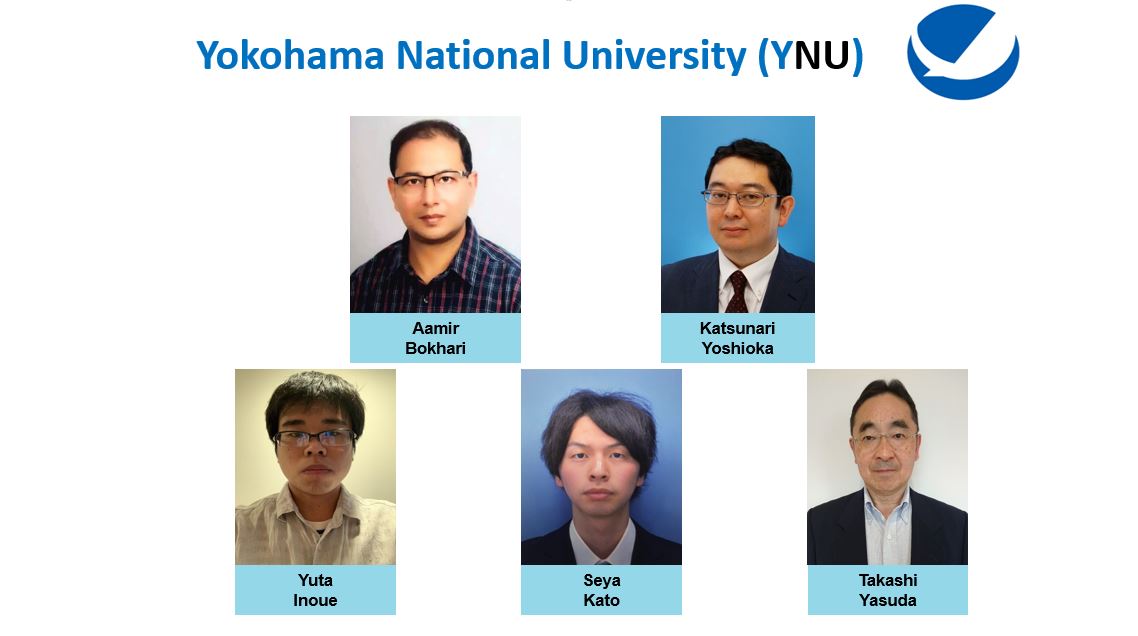For almost 3 years, Yokohama National University, in Japan, has been a key member of the M-Sec consortium. Meet their team and the work behind their involvement in the project, learn more about their role in M-Sec and where will they go next
We spoke with Aamir H. Bokhari, the lead researcher on Information Security in the M-Sec project, to know more about the University’s role in the Project.
1. Aamir, thank you so much for agreeing with this interview. Please briefly present yourself and the University you work at.
My name is Aamir H. Bokhari and I am the lead researcher on Information Security in the M-Sec project. I have over 20 years of global experience in IT and Information Security across diverse industries. My past experiences from manufacturing to system provider to end user, coupled with R&D enables me to look into the technological challenges from all stakeholder’s point of view and come up with solutions addressing everyone’s needs.
Yokohama National University (YNU) is one of the leading national research universities in Japan. It was founded in 1874 and has 5 colleges and 6 graduate schools, with over 10,000 national and international students. YNU was ranked among the top 25 universities in the area of “Co-publications with Industrial partners†in the world (U-Multirank 2019). Its graduate school of Environment and Information Sciences (EIS) focuses on the academic and research in the fields of Natural, Artificial, and Information Environments. The main goal of YNU is to contribute to the welfare of people in Japan and beyond, as well as to the sustainable development of society.
2. Why have you and YNU decided to join the M-Sec Project?
The Graduate School of Environment and Information Sciences (EIS) at YNU particularly focuses on securing the Information Environment. With an increasing trend toward the future smart cities, it is vital for their success to provide a secure digital environment where information obtained through various means can be trusted and used effectively. The main interest for joining the M-Sec consortium was to secure and empower trusted information environment in future smart cities for the benefit of the society all over the globe.
My main interest was to address the challenges associated with strengthening connections in the technological spheres of Big Data, IoT, Blockchain, and Cloud computing from security and privacy point of view. By understanding the threats and risks associated with the data in the digital future, we can enable smart cities in achieving a trusted environment through privacy protection and information security via confidentiality, integrity, and availability of the data.
3. Can you also present the team that works with you for the M-Sec Project?
The YNU team consists of professors, researchers, students, and staff to address various research challenges and solutions via team work and collaboration.
4. What has been the main role of YNU at the M-Sec Project and have you been able to achieve all you have set for? What were your and your team’s main challenges?
We are the information security experts, researching and addressing the key challenges associated with securing the data in the IoT and Cloud, for a trusted use by the end users in a smart city environment.
And yes, we have been able to achieve almost all of our participation objectives. I believe the main challenge has been the unexpected event of the Covid-19 pandemic that created some hurdles in the field testing. But, we will be able to overcome them by the end of the project.
5. Looking back on what you and your team have done in the scope of the M-Sec Project, what are your main takeaways?
Due to the digital boom, smart cities are inevitable and the reliability on data being collected by hundreds of IoT sensors must be trustworthy. Therefore, securing the path on which the data can be safely transferred from the IoT sensors to the end users is challenging due to the resource-constraint IoT devices. The main takeaway is to design a solution such that the security should not affect the intended use of the IoT devices.
6. With only a few months until the end of the project, on what major developments do you and your team still need to focus? Do you feel confident?
The field testing in the form of use case pilots got delayed due to the pandemic. But, I am confident that we will complete that as well. Also, looking forward to the remaining task of joint publications with our European partners by the end of the project.
7. Did you find this experience of participating in an EU-JP partnership rewarding?
This was our first experience with an EU-Japan collaborative project. This has definitely been a rewarding experience due to the power of international collaboration that brings various talents to the table. We have learned a lot from other partners on this project. We hope that we have been able to contribute our information security expertise as well.
We are always engaged in the research activities that can benefit broader audiences in our society. We plan to continue our research in information security and IoT as it covers a broad range of areas that can affect us. Besides our current on-going research projects, we are also open to future collaborations and projects worldwide.


